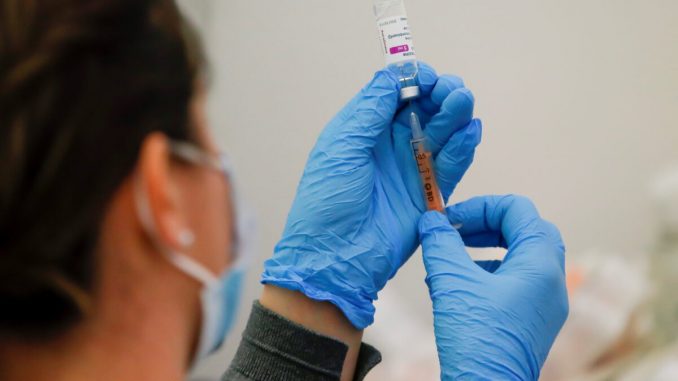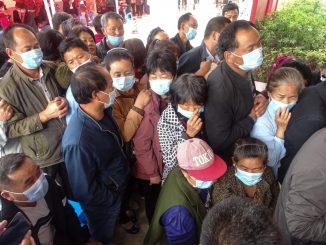

The UK health authorities said on Friday that people under 40 will be offered an alternative to the Oxford/AstraZeneca CCP virus vaccine.
According to the UK’s medicines regulator, Medicines and Healthcare products Regulatory Agency (MHRA), 49 people have died after developing blood clots following vaccination with the AstraZeneca shot.
As of April 28, there have been 242 cases of post-vaccination blood clotting events, which occurred in 141 women and 100 men aged from 18 to 93 years.
Professor Wei Shen Lim, COVID-19 chairman for JCVI, said: “We have continued to assess the benefit/risk balance of COVID-19 vaccines in light of UK infection rates and the latest information from the MHRA on the extremely rare event of blood clots and low platelet counts following vaccination.
“As COVID-19 rates continue to come under control, we are advising that adults aged 18 to 39 years with no underlying health conditions are offered an alternative to the Oxford/AstraZeneca vaccine, if available and if it does not cause delays in having the vaccine.
“The advice is specific to circumstances in the UK at this time and maximises use of the wide portfolio of vaccines available.
“The COVID-19 vaccines have already saved thousands of lives and the benefit for the majority of the population is clear—if you are offered the vaccine, you should take it.”
Experts have also assessed the risks from any third wave of CCP (Chinese Communist Party) virus infections in the UK and concluded that that wave is likely to be smaller than previously anticipated, therefore the risks to younger people are lower.
The supply of alternative vaccines, including Pfizer and Moderna, has also meant there can be a change.
Dr. June Raine, MHRA chief executive, said: “Public safety is always at the forefront of our minds and we take every report seriously.”
She said the regulator’s position remains that “the benefits of the COVID-19 Vaccine AstraZeneca against COVID-19, with its associated risk of hospitalisation and death, continue to outweigh the risks for the vast majority of people.”
“The balance of benefits and risks is very favourable for older people but is more finely balanced for younger people and we advise that this evolving evidence should be taken into account when considering the use of the vaccine,” she said.
“The public should be reassured of our continuing high standards when monitoring these vaccines for safety, quality and effectiveness,” she said, adding “it is still vitally important that people come forward for their vaccination when invited to do so.”
PA contributed to this report.





Be the first to comment